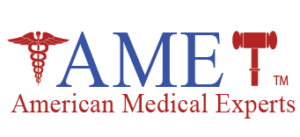Dialysis is a medical procedure employed as an artificial replacement for lost kidneys. Specifically, dialysis focuses on removing toxins and waste from a patient whose renal ability is impaired due to disease. The kidneys are essential in maintaining the body’s healthy internal equilibrium of water and minerals.One of AME’s dialysis expert witnesses has written an exclusive medical malpractice article that we have provided, for your interest, below..Dialysis Unit Communication – Real Time or Real Problem Dialysis Unit Communication: At present there are more than 6500 dialysis centers in the Untied States that provide life saving care for patients with end stage renal disease (ESRD) requiring in renal replacement therapy. This often thrice-weekly form of treatment has become commonplace in virtually every major city and suburb in the US. Dialysis care is almost universally provided by Nephrologists (physicians specializing in the diagnosis and treatment of kidney diseases) in close collaboration with a team of health care providers that includes specially trained dialysis nurses technicians, social workers and dieticians. Dialysis care is now considered sufficiently routine that the Nephrologists need not be present during each treatment. Potential Consequences of Dialysis: Potential Consequences of Dialysis: As with any procedure, hemodialysis carrels a small but significant risk of complication including infection, low blood pressure, and bleeding. The risk of choric blood loss is real, even under ideal conditions; however, blood los may also be acute, especially in patients with plastic dialysis catheters that are susceptible to accidental disconnection during or after the dialysis procedure. Standard of Care: Recent evidence suggests that hemodialysis units widely vary in standardizing communication when untoward vents occur in the absence of the Nephrologist. While some units report any unit ward event, others elect not to inform the Nephrologist, potentially causing these events to be unaddressed, thereby increasing the risk of recurrence, complications and even death. Partly as a result to this variability in practice, it is necessary for physician to review the “event threshold” that mandates communication between the Dialysis Unit and Nephrologist in order to prevent or minimize or the risk of dialysis related complications that jeopardize the patients’ well being. It is also clear that the absence of documentation that communication has in fact occurred increases liability in cases of these unfortunate complications. References: (4-6) 4. Di Benedetto A, Pelliccia F, Moretti M, d’Orsi W, Starace F, Scatizzi L, et al. What causes an improved safety climate among the staff of a dialysis unit? Report of an evaluation in a large network. J Nephrol. 5. Spiegel B, Bolus R, Desai AA, Zagar P, Parker T, Moran J, et al. Dialysis practices that distinguish facilities with below- versus above-expected mortality. Clin J Am Soc Nephrol.5(11):2024-33. 6. Harwood L, Ridley J, Lawrence-Murphy JA, White S, Spence-Laschinger HK, Bevan J, et al. Nurses’ perceptions of the impact of a renal nursing professional practice model on nursing outcomes, characteristics of practice environments and empowerment–Part II. CANNT J. 2007;17(2):35-43. About this Expert: The Nephrologist Expert who wrote this article is an Associate Professor of Medicine at Boston University and an attending physician in the Renal Section at Boston Medical Center. His interests include education of medical students and house staff, basic research on the cellular mechanisms of ischemic acute renal failure and the care of patients with both general medical and renal diseases. This Expert is the senior author of numerous publications in the area of the cellular stress response to acute renal ischemia and has been a Principal Investigator for the National Institutes of Health for almost 20 years. He also received several awards for excellence in teaching from medical students, house staff and colleagues at Boston Medical Center. Most recently, he was a finalist for the Metcalf Teaching Award at Boston University for full-time faculty and received the Grant V. Rodkey award from the Massachusetts Medical Society for significant contributions to medical student education and mentoring. This expert has been involved in the care of complex internal medicine and nephrology patients for more than 25 years in both private practice and university hospital settings.

